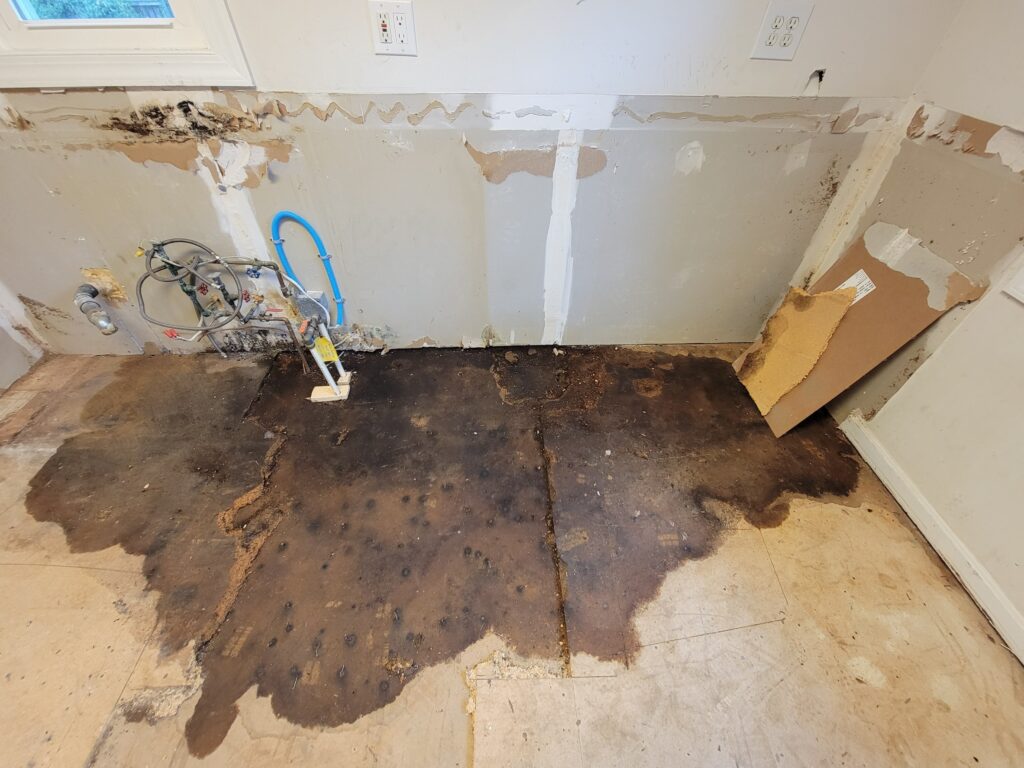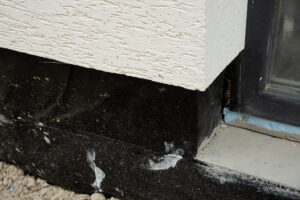Waterproofing acts as a silent guardian that prevents water from flooding the spaces underneath our houses. When this barrier breaks down, there are subtle but worrying indicators that your line of defense is ineffective. The once-dry haven turns into a battlefield where musty smells and moisture linger.
Cracks, peeling paint, and the creeping presence of mildew are a few warning signs of a compromised waterproofing system. These indicators signal imminent dangers in this underground domain, where structural integrity and elemental forces collide. Below are signs your existing basement waterproofing installation failed.
Odors of dampness or mustiness
The first indication of a malfunctioning waterproofing system in the basement is a damp or musty smell. These odors indicate excess moisture generated by leaks, which later facilitate the growth of mold.

Incorrectly installed waterproofing will fail
To keep moisture at bay, a homeowner may need to strengthen the existing system or invest in a robust waterproofing material. If you discover foul odors, you must check the cause as soon as possible to avoid property damage.
Water residue on the surface
If the basement walls have water stains on them, it’s possible that the initial waterproofing wasn’t done correctly. Water is the most prevalent cause of these stains that affect the foundation and leave residue behind. Ignoring the warning signals might lead to bigger problems later on, such as structural damage and low quality of air indoors. Anyone can get a wrong impression whenever they notice these signs in the basement as they show signs of carelessness or negligence.
Efflorescence
Another clue that the basement’s waterproofing attempt was a failure is the existence of efflorescence, a white, powdery material, on the walls. It is caused by minerals in dissolved water that remain behind as the water evaporates. While efflorescence on the walls is a harmless sign of water penetration, it serves as a clear signal of a potential breakdown in the first waterproofing procedure.
Still water
The presence of puddles or standing water in the basement is a certain sign of a failed waterproofing system. This may occur during a period of intense rain or snow, indicating that water is not being properly diverted away from the foundation. In addition to causing structural damage, standing water also fosters the growth of mold. Additionally, it may draw vermin and insects like mosquitoes that might harm your health.
Foundation issues
One of the primary factors that contribute to foundation cracks in the basement is variations in the settlement of soil. However, new or expanding foundation fractures on the existing waterproofing material could mean that the system isn’t fully capable of handling water pressure. In order to stop flooding, it is imperative to employ a sturdy solution as quickly as feasible. Additionally, it adds to the structure’s structural stability, raising the value of your home.
Defective sump pump
When a sump pump fails, it sends a warning that the effectiveness of basement waterproofing is compromised. Since this device acts as the final line of defense, it forms an integral part of waterproofing that prevents water damage. Its failure indicates that the waterproofing system may have failed or reached its operational limit. Water can bypass the protective barrier and flow freely inside the basement, compromising the integrity of the building. Addressing the sump pump issue necessitates re-evaluating the whole waterproofing plan thoroughly to guarantee a strong defense against possible water incursion.
Justifications for consulting a professional
If you wish to protect your foundation from potential water damage, you must engage an expert for basement waterproofing. They have specific training and expertise that allow them to provide a thorough evaluation of the particular requirements of your basement. They use cutting-edge methods and superior materials that outperform do-it-yourself fixes, offering a resilient barrier against moisture. Their expertise extends to identifying and addressing underlying issues like foundation cracks and inadequate drainage, preventing future water intrusion.
Choosing a professional also guarantees precision in installation and a warranty for the work performed, offering homeowners peace of mind. In the end, hiring a professional waterproofing service maintains the structural integrity of your building, improves the purity of the air within your house, and increases the overall worth of your property.
Homeowners need to be aware of the primary signs of a failing basement waterproofing system in order to protect their investment and provide a dry, secure living space. Consult a waterproofing expert to evaluate the issue and carry out any required fixes or enhancements. By keeping your basement waterproofing system maintained and current, you may avoid expensive repairs and safeguard the structural integrity of your house for many years to come.



